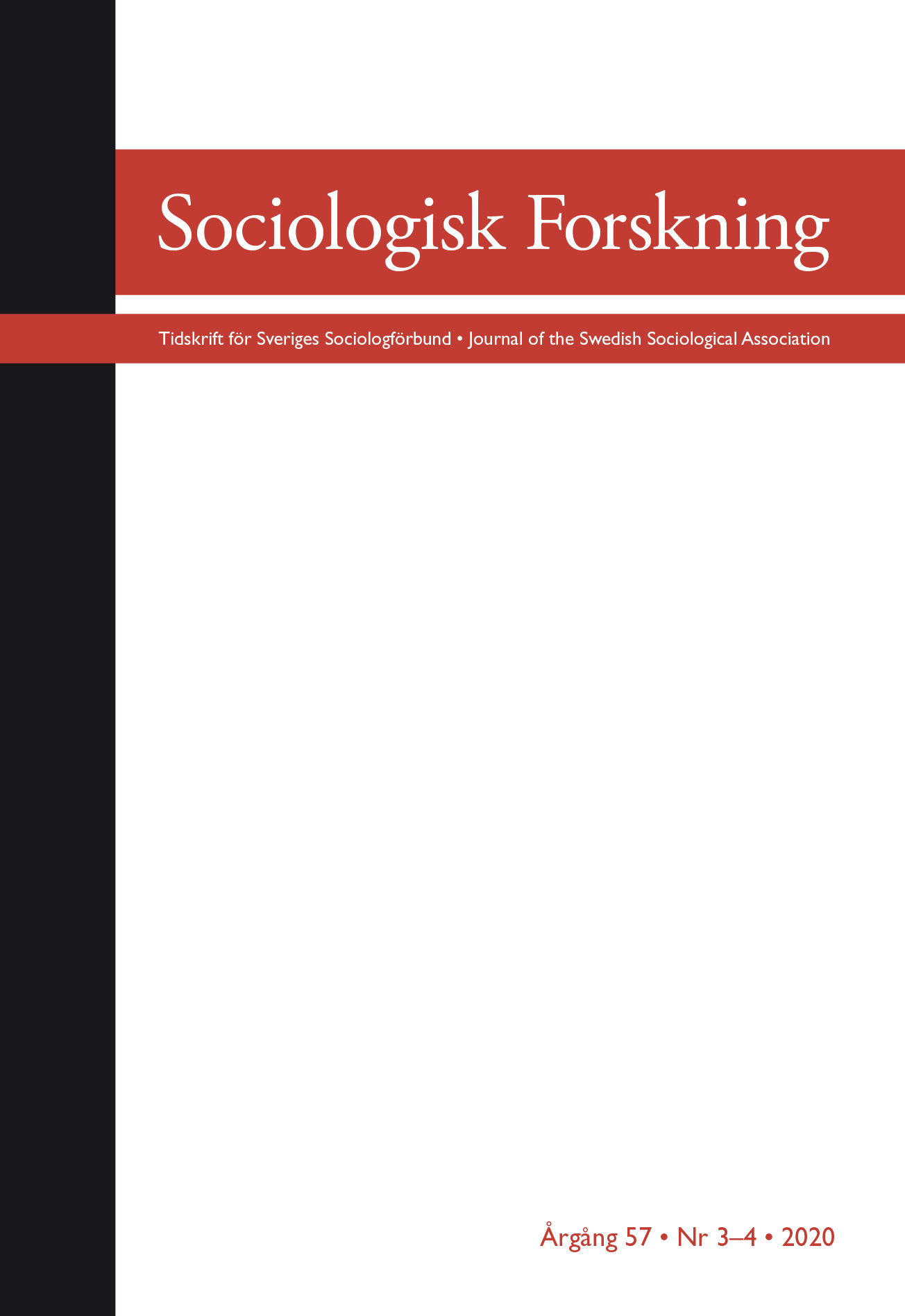The performativity of objects
DOI:
https://doi.org/10.37062/sf.57.22321Keywords:
Material objects, Cultural sociology, Cultural performance, Design, CriticismAbstract
This essay, a revised version of the keynote lecture prepared for Sociologidagarna 18–20 March 2020 in Stockholm, introduces a new, cultural-sociological theory of materiality. Sociology did not metabolize the cultural turn until the 1980s. Even when cultural sociology finally did emerge, moreover, there were powerful pushbacks against it. Neo-Marxism, neo-Pragmatism, neo-institutionalism incorporated this or that cultural concept but resisted the culture turn more broadly, tying meaning to social structure and practice rather than recognizing its autonomy. Cultural sociology has flourished in recent decades, but so have new backlash movements. None has been more persistent than the turn toward the object and its reduction to materiality. Icon theory positions itself again this turn, suggesting that, in society, materiality is invested with imagination and enlivened by performativity. The surface of objects is aesthetically formed, and the meaning of such sensuous experience of outer form is structured by invisibly discursive depth. Durkheim’s sacred and profane must be complemented by Burke’s beautiful and sublime. Informed by background representations, such aesthetic-cum-moral objects are designed by artists and craft-persons; produced by creators with access to material resources; put into the scene by advertisers and PR specialists; and mediated by criticism – before they are embraced or rejected by audiences.
Downloads
Published
How to Cite
Issue
Section
License
All content in Sociologisk Forskning is published with immediate open access, under the Creative Commons license CC BY-NC-ND 4.0.
All content may be read, downloaded, shared and printed for non-commercial purposes, free and without fees. Contents may not be altered. When content is reused, author, source and a link to the copyright licence must be provided. The author retains copyright to their content. No publication fees are charged.





